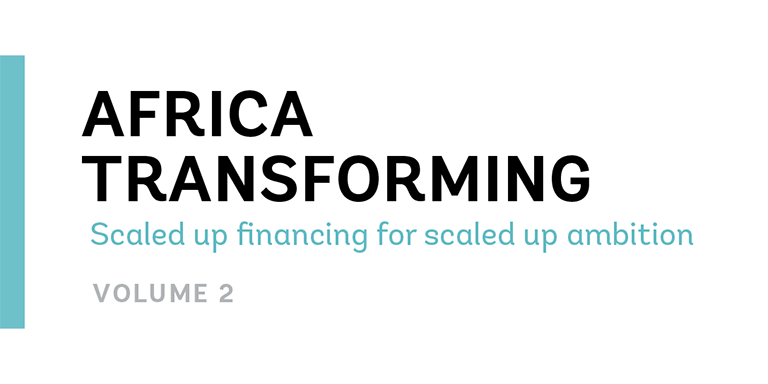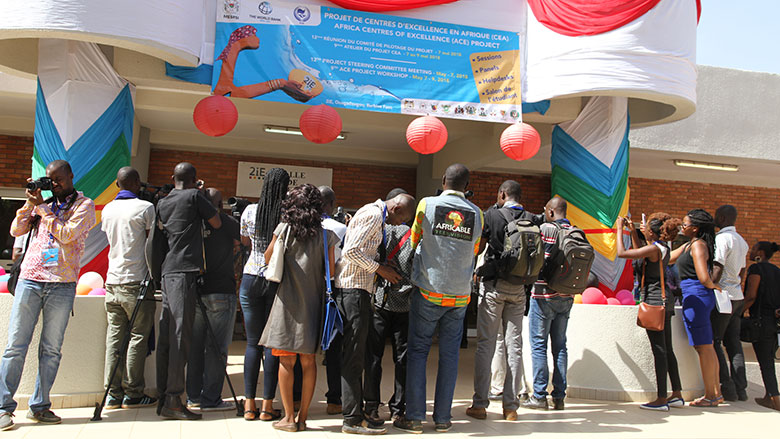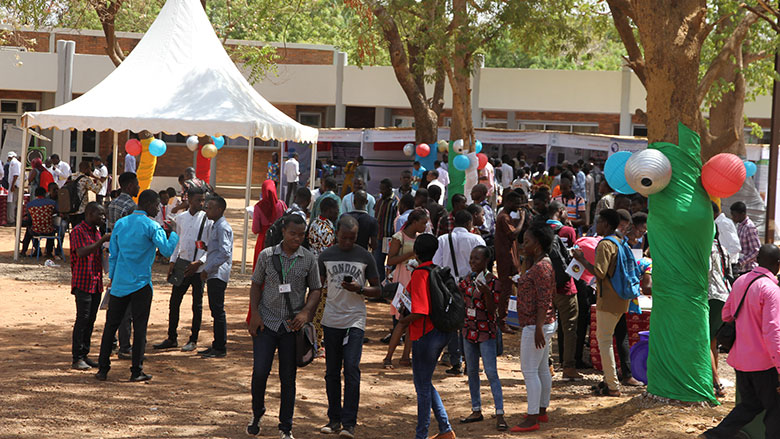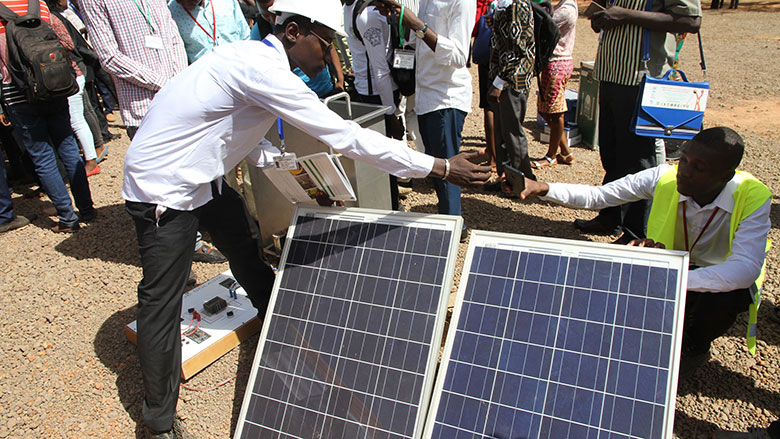The ACE Project
The ACE Project was launched in 2014 with IDA funding of $165 million to help Benin, Burkina Faso, Cameroon, Côte d’Ivoire, the Gambia, Ghana, Nigeria, Senegal, and Togo establish these 22 centers to develop the skills needed to accelerate Africa’s development.
Every ACE is unique and, together, they are at the forefront of applied research to produce a critical mass of high-level specialists in scientific and technical fields as varied as genomics and infectious diseases, water and sanitation, biotechnology, reproductive health, agriculture and environmental sustainability, and engineering.
With well-established partnerships with universities and manufacturers in Africa and beyond, ACE students learn from the best professors from the continent and the diaspora using state-of-the-art equipment. Professor Harouna Karambiri, 2iE ACE Coordinator, says students come from all over Africa.
“Upon completion of their training, our students are innovative, competitive at the national, regional and international levels, and rapidly enter the labor market,” he explains.
Eighteen programs across seven centers have undergone the rigorous process to receive international accreditation. This certifies that the programs, curriculum, competence goals, and teaching methods meet international standards, including those of the German Agency for Quality Assurance through Accreditation of Study (AQAS), Royal Society of Biology in the UK, and Quality Assurance Agency in France (HCRES).
Since being established, centers have expanded their offerings, with 35 new programs attracting over 6,500 students pursuing master’s degrees and 1,600 pursuing doctorates. Almost 17,000 national and regional students have taken specialized short courses. A dedicated effort to attract more women and girls to the sciences has resulted in over 4,000 female students enrolled in master’s, doctoral, and short courses.
“Upon completion of their training, our students are innovative, competitive at the national, regional and international levels, and rapidly enter the labor market,” explains Professor Harouna Karambiri, 2iE ACE Coordinator. Photo: Manivelle
The next phase
These results are encouraging, and the World Bank will expand its support to establish new centers of excellence and provide additional funding to particularly effective ACEs at the regional and international levels.
A new project, called ACE Impact, is under preparation and will be financed from IDA18 resources. The emphasis will be on impact and productivity. Universities will be able to strengthen their activities and envisage other opportunities in the continued effort to build the human resources Africa needs to speed its development.





